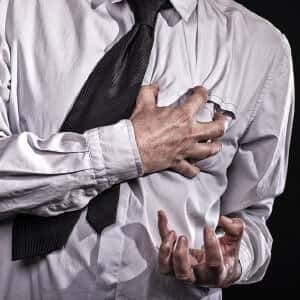
Analysis of 46 epidemiological studies with 1.2 million participants has shown that a high resting heart rate could be a marker for poor cardiovascular health. The studies that looked specifically at cardiovascular health had almost 850,000 subjects, of whom more than 25,000 died of heart attack, stroke or another cardiovascular complication.
Rapid Heart Rate and Premature Death:
The Chinese epidemiologists found that a pulse that is increased by about 10 beats per minute boosts the risk of premature death by around 9 percent. People with a resting heart rate of 80 beats per minute or more have a 45 percent higher risk of dying early compared to those with a heart rate of 60 or below.
Can You Slow Your Rapid Heart Rate?
Heart rate is variable, because the heart beats more quickly when a person is frightened or moving fast. This is no doubt an evolutionary adaptation for when early humans needed to run away from tigers or bears. That is why the investigators were looking at resting heart rate, which is more stable from day to day.
To find out what your heart rate is, take your pulse or use an electronic home blood pressure monitor. Most such devices measure heart rate along with blood pressure.
Beta Blockers:
Doctors can prescribe drugs that will lower heart rate. That is one effect of the beta-blocker class of blood pressure pills. It is not clear, however, that lowering heart rate with a beta blocker would counteract the underlying cardiovascular problems that put people with a naturally high resting heart rate at higher risk of cardiovascular death.
Exercise:
The investigators on this study recommend that people with high heart rates adopt regular exercise routines to lower their resting heart rate. That is an excellent recommendation, especially given the new research showing the benefits for older adults of maintaining moderate activity.
Meditation:
Another possible approach to lowering heart rate might be practicing meditation. Learning to breathe slowly and relax the body can often help bring heart rate down, and the only side effect that we know of is feeling less stressed out.

